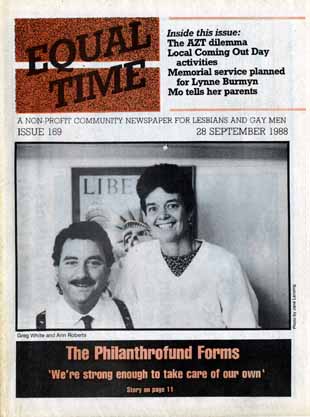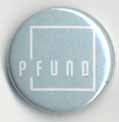Difference between revisions of "Philanthrofund"
| (5 intermediate revisions by 3 users not shown) | |||
| Line 1: | Line 1: | ||
| + | {{unprotected}} | ||
| + | |||
<div style="text-align: center;"> | <div style="text-align: center;"> | ||
'''1409 Willow Street, Minneapolis, MN''' | '''1409 Willow Street, Minneapolis, MN''' | ||
| Line 21: | Line 23: | ||
Like any other foundation, it creates this money by investing donated funds and accruing the profits of the investments. Unlike other foundations, PFund predominantly uses a collection of small and medium-sized donations—it does not rely on major one-time donations. | Like any other foundation, it creates this money by investing donated funds and accruing the profits of the investments. Unlike other foundations, PFund predominantly uses a collection of small and medium-sized donations—it does not rely on major one-time donations. | ||
| − | | [[Image:Svc_pfund.jpg]] | + | | <div style="text-align: center;"> |
| + | [[Image:Svc_pfund.jpg]] | ||
| + | </div> <div style="text-align: center;"> | ||
| + | <small>'''PFund makes the cover page of Equal time in 1988. Courtesy of the [[Jean-Nickolaus Tretter Collection]].'''</small> | ||
| + | </div> | ||
|} | |} | ||
| − | The organization’s early success is remarkable if one considers that it began during the AIDS crisis—many in the community felt financially and emotionally burdened by HIV/AIDS-related causes. Volunteers and donors similarly wanted to express the organization’s message: “we are strong enough to take care of our own.”<small>(3)</small> In 1990—just three years since its inception—PFund’s endowment increased to $8,000 dollars and it joined the Minnesota Council of Foundations. Calliope Women’s chorus, the Minnesota AIDS Project, and a number of University of Minnesota campuses were among the 13 recipients.<small>(4)</small> | + | The organization’s early success is remarkable if one considers that it began during the AIDS crisis—many in the community felt financially and emotionally burdened by HIV/AIDS-related causes. Volunteers and donors similarly wanted to express the organization’s message: “we are strong enough to take care of our own.”<small>(3)</small> In 1990—just three years since its inception—PFund’s endowment increased to $8,000 dollars and it joined the Minnesota Council of Foundations. Calliope Women’s chorus, the [[Minnesota AIDS Project (MAP)]], and a number of University of Minnesota campuses were among the 13 recipients.<small>(4)</small> |
{| {{prettytable}} | {| {{prettytable}} | ||
| Line 37: | Line 43: | ||
<small>'''PFund button, c.2000. Courtesy of the [[Jean-Nickolaus Tretter Collection]].'''</small> | <small>'''PFund button, c.2000. Courtesy of the [[Jean-Nickolaus Tretter Collection]].'''</small> | ||
</div> | </div> | ||
| − | | Donations increased in size and number as media attention focused on the positive effects of PFund’s activities—the organization’s growth eventually prompted a separation of grants for other organizations and scholarships for students. In 2002, 20 students received scholarships from the $50,000 scholarship fund<small>(5)</small>. In 2009, the Foundation awarded more than $140,000 to recipients in the Upper Midwest. | + | | Donations increased in size and number as media attention focused on the positive effects of PFund’s activities—the organization’s growth eventually prompted a separation of grants for other organizations and scholarships for students. In 2002, 20 students received scholarships from the $50,000 scholarship fund<small>(5)</small>--[[Minnesota Men of Color]] was among many organizations to receive a 2,000 grant in the same year.<small>(6)</small> In 2009, the Foundation awarded more than $140,000 to recipients in the Upper Midwest. |
| Line 45: | Line 51: | ||
| − | + | ---- | |
| + | ==This entry is part of:== | ||
| + | == [[Minneapolis/St. Paul, MN: 100 Queer Places in Minnesota History, (1860-2010)]]== | ||
---- | ---- | ||
| Line 59: | Line 67: | ||
<small>(5)</small>" According to a program from the 2002 Scholarship Awards ceremony, which is part of teh Philanthrofund Collection at the [[Jean-Nickolaus Tretter Collection]]. | <small>(5)</small>" According to a program from the 2002 Scholarship Awards ceremony, which is part of teh Philanthrofund Collection at the [[Jean-Nickolaus Tretter Collection]]. | ||
| − | + | <small>(6)</small>Hoekstra, Joel. "Philanthrofund Names Grant Recipients" ''City Pages'', 1/1/1998. | |
Latest revision as of 05:42, 2 February 2012
1409 Willow Street, Minneapolis, MN
| While planning their respective estates, David Berchenbriter, Jim Quinn, Gregory White, and Bill Zwarft collectively sought a foundation for GLBT scholarship and service. The four friends did not find such an organization in Minnesota, and they decided to create one in December of 1987. Eight community members formed a board of directors; Philanthrofund was born.(1)
|
PFund makes the cover page of Equal time in 1988. Courtesy of the Jean-Nickolaus Tretter Collection. |
The organization’s early success is remarkable if one considers that it began during the AIDS crisis—many in the community felt financially and emotionally burdened by HIV/AIDS-related causes. Volunteers and donors similarly wanted to express the organization’s message: “we are strong enough to take care of our own.”(3) In 1990—just three years since its inception—PFund’s endowment increased to $8,000 dollars and it joined the Minnesota Council of Foundations. Calliope Women’s chorus, the Minnesota AIDS Project (MAP), and a number of University of Minnesota campuses were among the 13 recipients.(4)
| PFund button, c.2000. Courtesy of the Jean-Nickolaus Tretter Collection. |
Donations increased in size and number as media attention focused on the positive effects of PFund’s activities—the organization’s growth eventually prompted a separation of grants for other organizations and scholarships for students. In 2002, 20 students received scholarships from the $50,000 scholarship fund(5)--Minnesota Men of Color was among many organizations to receive a 2,000 grant in the same year.(6) In 2009, the Foundation awarded more than $140,000 to recipients in the Upper Midwest.
|
This entry is part of:
Minneapolis/St. Paul, MN: 100 Queer Places in Minnesota History, (1860-2010)
(1)Lansing, Jane. "The Philanthrofund Forms" Equal Time News, Issue 169: 9/28/1988. Page 11.
(2) Ibid.
(3)Ibid.
(4)"Philanthrofund Foundation Announces Over $8,000 in Grants to Organizations" Twin Cities Gaze, Number 125: 11/1/1990.
(5)" According to a program from the 2002 Scholarship Awards ceremony, which is part of teh Philanthrofund Collection at the Jean-Nickolaus Tretter Collection.
(6)Hoekstra, Joel. "Philanthrofund Names Grant Recipients" City Pages, 1/1/1998.

